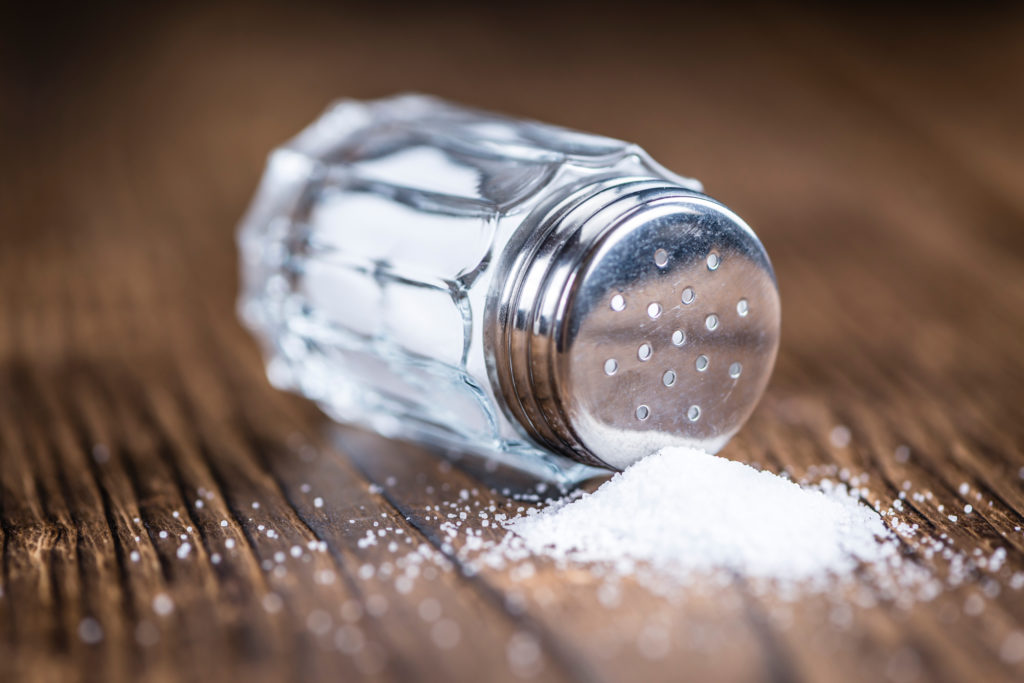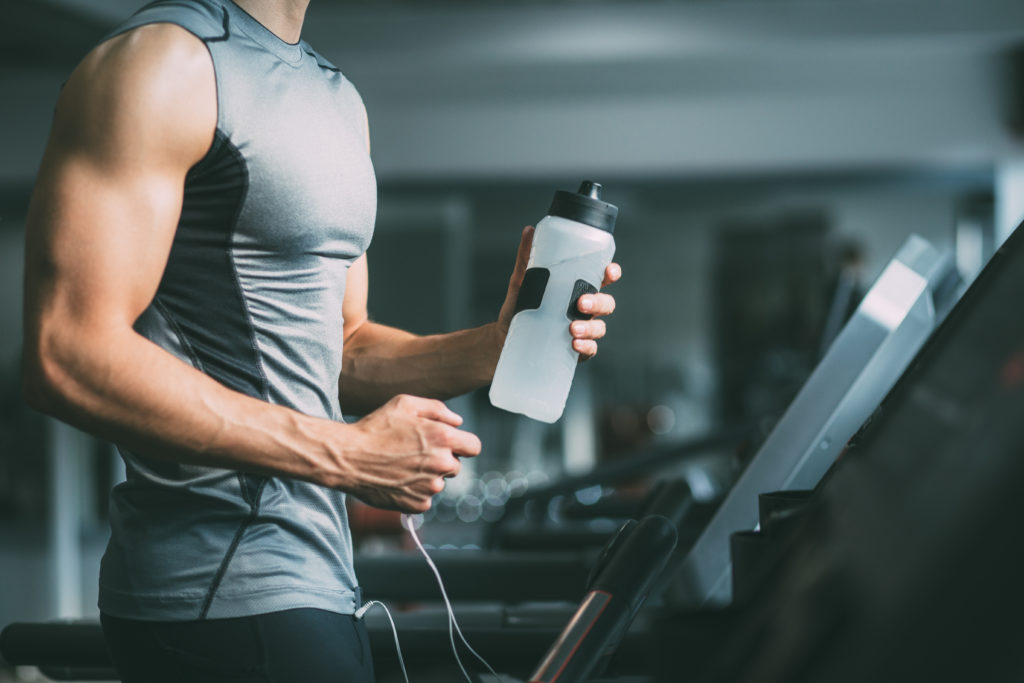Sodium is a lot more useful for strength and performance than you’ve been told.
If you’re a fan of strongman, you might have seen Brian Shaw pouring many, many times the recommended daily intake of salt into his burgers. Or maybe you’ve seen strength coach Jason Ferruggia swearing that salty pickles are his secret weapon for performance. Or perhaps you’ve heard Stan Efferding, nutrition coach for World’s Strongest Man Hafthor Bjornsson, calling sodium one of the most necessary and effective performance enhancers on Earth.
If you’ve heard statements like that, there’s a good chance you’re confused by nutritionists the world over calling sodium a one-way ticket to an early grave. Today, I want to explain why it could be the missing component in an athlete’s nutrition plan.
What Is Sodium, Anyway?
Salt is an electrolyte, putting it in the same group as potassium, magnesium, calcium, and phosphate. Electrolytes create electrically charged ions when dissolved in the body’s fluids and a big job for sodium and potassium is maintaining the right balance of fluids inside and outside of your cells. In other words, they help make sure your cells don’t shrivel like raisins or blow up like balloons.
Electrolytes have a few other jobs as well, like maintaining the proper pH of your blood, but an important thing to note is that when we perspire, sweat takes electrolytes with it on its way out of your pores. How much you lose can vary, but generally speaking, you can lose between half a liter to four liters of sweat per hour during a workout and a liter of sweat has roughly 900 milligrams of sodium, 200 milligrams of potassium, 15 milligrams of calcium, and 13 milligrams of magnesium.
In short, you lose way more sodium when you sweat than any other electrolyte. That’s why it’s fair to say that sweaty athletes need to focus on replenishing sodium more than the others, particularly since if you’re eating plenty of fruits, vegetables, and whole foods, you probably don’t need to worry about supplementing the other ones.
What Are the Benefits of Sodium for Athletes?
Maintaining fluid balance is of enormous importance for athletes because those electrical charges help to activate muscle tissue and neurons. But if you ask Stan Efferding, who isn’t just the nutrition coach for Hafthor Bjornsson and Brian Shaw but also a world-record-holding powerlifter and bodybuilder, it’s important for a lot more.
Stan Efferding says that our blood thickens when it’s dehydrated, so not only does our blood carry less oxygen, we have a harder time filtering blood through our kidneys. Salt helps to increase blood volume so we have a better cardiovascular system, better stamina, better endurance, and better recovery from training.
A lot of research agrees. Spanish researchers found that triathletes supplementing with salt-laced water finished a medium-distance race 26 minutes faster than a control group and a more recent randomized, double-blind study of endurance runners, published in PLoS One, found that “maximal performance was enhanced significantly” by supplementing with sodium.
Can Sodium Improve Strength?

Athletes need a higher salt intake than the general population. Too much sodium in the blood can throw off your blood pressure, but the point is that athletes tend to lose a lot more sodium than the general population and since they tend to eat fewer processed foods, they may consume less salt.
But doesn’t sodium bloat you? Yes, Efferding says, that’s one of the reasons it’s great for strength.
He recommends a half teaspoon immediately before exercise, assuming it’s going to be a significant workout and not, as he puts it, a “cable push-ups and selfies session.” Some studies on football players’ workouts, for instance, have seen them lose almost 7 grams of sodium per hour. The RDI is about 2.3 grams.
Could salt be beneficial even if you’re not sweating quite as much — say, you’re hitting some heavy singles instead of crushing a metcon? Well, it is still important for hydration, but no, if you’re not losing as much sodium then you don’t need to replenish it so much.
We lose more sodium than any other electrolyte when we sweat. But our intake is dependent on our other electrolytes being in good shape as well. While it’s true that eating a lot of fruits and vegetables should keep our electrolyte intake pretty solid, it bears emphasizing that potassium and sodium work together, and they work with calcium, another electrolyte.
Calcium relaxes the blood vessels and ameliorates all the potential blood pressure-increasing effects of salt. We can’t talk about that without talking about Vitamin D3, which helps with the absorption of calcium. And then you need to talk about Vitamin K2 which keeps it from being deposited in blood vessels and helps it get to bones and teeth. It all works together.
I don’t want to overcomplicate it, but the take-home message is to fill your macros with a diverse range of foods. And while your sodium needs do increase when you sweat, make sure you listen to your doctor before making significant changes to your diet or lifestyle.
Now you may be thinking to yourself, “Joey, what do you do?” Ok, here is what I personally do as I prefer to start slowly vs loading up right away.”
Start with 1/4 TSP in your water before a workout that you know you are going to sweat during (about 500mg) of salt (no it doesn’t matter what kind), or you can buy salt tabs that tell you exactly how much is in each. Then either during or after your workout do another 1/4 TSP to replenish your sodium and see how you feel.
Another great option is an electrolyte pack before/during/after (just one total pack).
I hope you enjoyed this article and it wasn’t too SALTY for you. HAHA!
Make sure to subscribe to my youtube page at youtube.com/joeythurmanfitness and follow me on IG and other socials at @joeythurmanfit.


